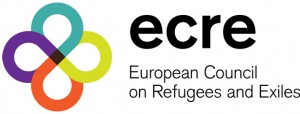
In the implementation of their international obligations, European and EU states have devised sophisticated asylum systems based on complex procedural tools. In some cases, tools are designed and used for the purpose of avoiding responsibility for refugees, because they allow claims to be dismissed as inadmissible before looking at the substance of the claim.
The recent EU-Turkey deal and the European Commission’s proposal for harmonised asylum procedures under an Asylum Procedures Regulation, for instance, revolve around concepts such as “safe third country” and “first country of asylum”.

A report launched today by the Asylum Information Database (AIDA), managed by the European Council on Refugees and Exiles (ECRE), documents the limited and fragmented application of admissibility and safe country concepts in 20 European countries.
“The latest reform of the Common European Asylum System brings the concepts of admissibility, responsibility and safety to the forefront of European asylum procedures, by introducing an obligation on Member States to deem applications inadmissible on the basis of ‘first country of asylum’ and ‘safe third country’ grounds”, says Minos Mouzourakis, AIDA Coordinator.
“Yet such a move seems ill-fitted in the absence of evidence-based knowledge on the use and interpretation of these concepts throughout the continent.”
The recent introduction of broad lists of “safe third countries” in countries such as Hungary, as well as the pressure placed on Greece to apply the concept following the EU-Turkey deal, run counter to practice in countries with longer-entrenched safe country concepts in asylum procedures. Countries with longer experience, and often judicial guidance, in the application of the “safe third country” concept have clarified that an asylum seeker cannot be considered to have a “sufficient connection” with a third country merely on the basis of transit or short stay.
The report also discusses the implementation of the Dublin Regulation and the emergency relocation scheme, two instruments regulating the allocation of asylum responsibility within the EU. As far as relocation is concerned, despite extremely slow rates of implementation in Europe, countries such as France and Portugal have designed processes for the swift processing of claims by persons relocated to their territory and their allocation to the different regions where applicants will be accommodated.
Drawing on the AIDA report, ECRE calls on European countries and EU institutions to:
- Proactively publish detailed statistics on key elements of their asylum procedures, such as inadmissibility decisions and the application of the Dublin Regulation, to promote evidence-based debates on the functioning of and challenges facing their asylum systems;
- Retain the 1951 Refugee Convention as the standard of international protection and apply the “first country of asylum” and “safe third country” concepts only to an asylum seeker who has already been recognised as a refugee or may be recognised as a refugee in line with the Convention, and may effectively benefit from such protection;
- Rigorously interpret the “sufficient connection” criterion for the purpose of the “safe third country” concept, so as to refrain from declaring asylum applications inadmissible on the sole reason that an asylum seeker has transited through a country considered safe;
- Firmly suspend the use of the Dublin procedure in respect of countries demonstrating human rights risks, in line with national and European jurisprudence. Clear suspension of Dublin procedures will ensure legal certainty to asylum seekers, but also more efficient administration and allocation of national authorities’ administrative and financial resources;
- Step up their efforts to honour the commitments set out in the Relocation Decisions, building on experience and good practices developed by the Member States implementing relocation to date. States should also refrain from initiating Dublin procedures regarding the countries benefitting from the relocation scheme, Italy and Greece, as the application of the Dublin Regulation is counter-intuitive to the aim of alleviating pressure on those countries’ asylum systems.
Notes to Editors:
The Asylum Information Database (AIDA) is a database managed by ECRE, containing information on asylum procedures, reception conditions and detention across 20 countries. This includes 17 EU Member States (Austria, Belgium, Bulgaria, Cyprus, Germany, Spain, France, Greece, Croatia, Hungary, Ireland, Italy, Malta, Netherlands, Poland, Sweden, United Kingdom) and 3 non-EU countries (Switzerland, Serbia, Turkey).
The overall goal of the database is to contribute to the improvement of asylum policies and practices in Europe and the situation of asylum seekers by providing all relevant actors with appropriate tools and information to support their advocacy and litigation efforts, both at the national and European level.
In Malta, the AIDA partners and researchers are aditus foundation and JRS Malta.
THE REPORT IS AVAILABLE HERE.

